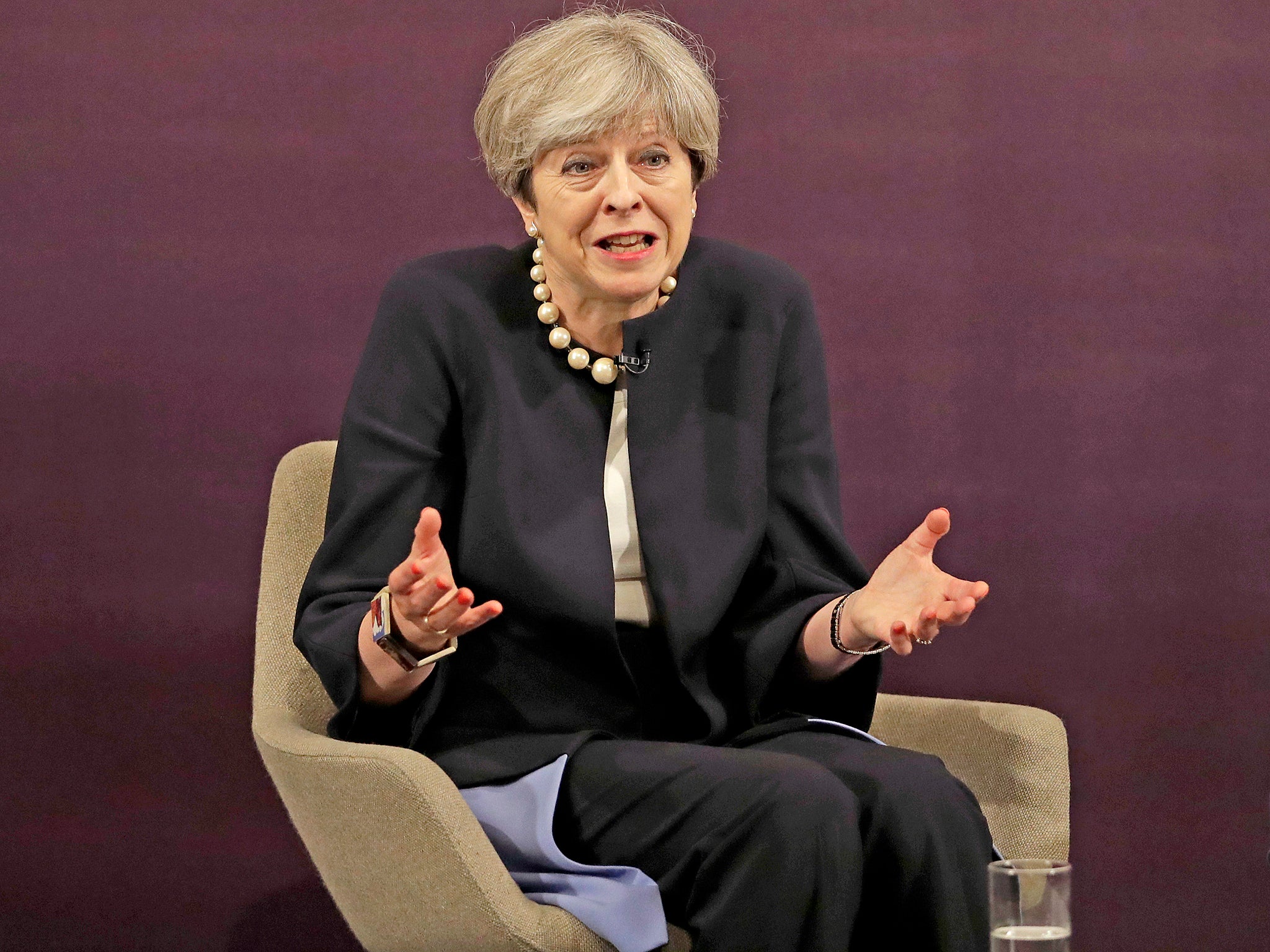Theresa May’s speech on work: what she said – and what she really meant
Our Chief Political Commentator reads between the lines of the Prime Minister's speech at the launch of the Taylor report


What Theresa May said: A year ago, I stood outside Downing Street for the first time as Prime Minister, and I set out the defining characteristics of the Government I was determined to lead.
What she really meant: You laugh if you want to. I’m still here and today I overtook Sir Alec Douglas-Home as the eighth shortest-serving Prime Minister.
What she said: And though the result of last month’s general election was not what I wanted…
What she meant: My decision to hold an election was an utter disaster.
What she said: … I am convinced that the path that I set out in that first speech outside Number 10 and upon which we have set ourselves as a government remains the right one.
What she meant: I am still convinced I am right but the British people said I am wrong so I’ll do something else. Anyone got any ideas?
What she said: That is why I am so grateful to Matthew for the report he is publishing today. Because the issues it confronts go right to the heart of the Government’s agenda and right to the heart of our values as a people.
What she meant: Because I might be able to cherry-pick a couple of ideas from it that will give the impression that the Government still has a plan.
What she said: With good work can come dignity and a sense of self-worth. It can promote good mental and physical health, and emotional well-being.
What she meant: There’s a lot of that kind of platitude in the report, and what my Government needs is new, better and more platitudes.
What she said: Think of the household where a mum or dad, a brother or sister, or a grandchild moves into employment.
What she meant: Or “gets a job” in normal English.
What she said: As an idea becomes an invoice…
What she meant: What do you mean, that’s rubbish? My speech-writing team were very proud of it. They told me it was poetry.
What she said: It will take time and a broad public debate to determine exactly the right action to take to ensure that we are living by all of these principles, and we will listen to all contributions to that debate.
What she meant: No doubt my successor, whoever he or she is, has a clear idea of what to do.
What she said: But I am clear that the Government will act to ensure that the interests of employees on traditional contracts, the self-employed and those people working in the “gig” economy are all properly protected.
What she meant: I am told that Jeremy Corbyn went to a gig and was well received, but it turned out that many of the workers there were on zero-hours contracts. My successor will put an end to this sort of thing.
What she said: When I commissioned this report I led a majority government in the House of Commons. The reality I now face as Prime Minister is rather different.
What she meant: It was a different world then. People in leadership positions had a secure job and looked forward to winning an election by a landslide and being Prime Minister for five and possibly 10 more years. Now I’m reduced to taking advice on how to make it harder for my employers to deactivate me.
What she said: So I say to the other parties in the House of Commons – read this report, engage with the difficult issues it raises, come forward with your own views and ideas about how we can tackle these challenges as a country.
What she meant: Then you will see that it is not as easy as it looks, is it? Then perhaps you’ll shut up and show a bit of respect for someone utterly useless who is doing the best they can.
What she said: We may not agree on everything.
What she meant: I disagree with Jeremy Corbyn about everything. But he deprived me of my majority so I must pretend to be open to new policies.
What she said: And this new context presents us as a government with a wider choice. At this critical time in our history, we can either be timid or we can be bold.
What she meant: Timid, I think. Definitely timid. What does anyone else think?
Join our commenting forum
Join thought-provoking conversations, follow other Independent readers and see their replies
Comments
Bookmark popover
Removed from bookmarks